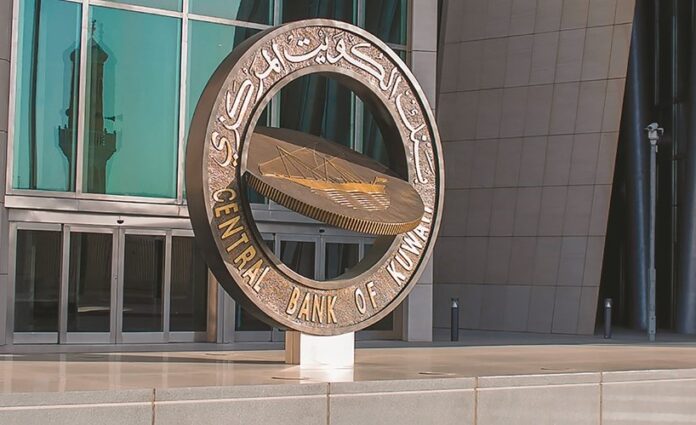
The Central Bank of Kuwait (CBK) has maintained the discount rate at 4%, citing the continued stability and strength of the country’s monetary and financial conditions. This decision reflects the CBK’s assessment of the local economic landscape, confirming that Kuwait’s financial situation remains sound amidst global and regional developments.
In a recent press release, CBK confirmed that it is maintaining the discount rate at 4%, citing the continued strength and stability of Kuwait’s monetary and financial conditions. This aligns with CBK’s evaluation of local economic data, reinforcing the soundness of the nation’s financial environment.
The announcement coincides with the US Federal Reserve’s recent move to cut interest rates by 25 basis points to 4.5-4.75%, marking the second rate reduction in 2024. This decision was in line with the expectations set before the US Central Bank’s meeting.
The Bank explained that its decision to maintain the 4% discount rate is part of its continuous efforts to monitor various factors, including international market fluctuations, geopolitical developments, and their impacts on global economic conditions. It emphasized the importance of adjusting its policies in response to these factors, considering both global trends and the specific needs of the local economy.
The decision reflects the CBK’s commitment to ensuring the stability of Kuwait’s financial system while accounting for external challenges and opportunities.
Monetary Policy Developments
The Central Bank stated that its recent monetary tightening cycle has been gradual, focusing on maintaining a balance between its objectives of safeguarding monetary and financial stability while promoting economic growth. This aims to achieve optimal results, supporting the country’s broader economic goals by carefully navigating the challenges posed by both domestic and global economic factors.
The Bank has raised the discount rate 9 times since March 2022, by a total of 275 basis points, bringing the rate to 4.25% as of July 2023.
This monetary tightening has been aligned with local economic conditions, helping to manage inflation and stabilize growth in non-oil sectors.
The CBK’s approach also benefits from the flexibility of the exchange rate system and the robustness of the Kuwaiti banking sector, bolstered by strict regulatory requirements for lending and adequate provisions. This strategy aims to maintain monetary stability while supporting sustainable economic growth.
This was confirmed by the final statement of the International Monetary Fund mission to the State of Kuwait issued on October 10, 2024.
Based on the Central Bank of Kuwait’s careful reading of the most prominent developments in local and global economic indicators and the end of the monetary tightening cycle in most global central banks, it reduced the discount rate by 25 basis points on September 19, 2024 to 4%.
Economic indicators
The data indicates a positive shift in Kuwait’s economic performance, with inflation decreasing from 4.71% in April 2022, to 2.75% in September 2024.
Additionally, the Kuwaiti dinar has remained relatively stable against major currencies, further supporting the country’s financial stability and economic outlook.
On the monetary and banking indicators side, the balances of residents’ deposits in the banking system recorded a growth of about 6.7% at the end of September 2024. This is compared to the end of September 2023, and private sector deposits in Kuwaiti dinars constituted 95.2% of the total private sector deposits at the end of September 2024.
Credit facilities balances (for residents and non-residents) also recorded a growth of about 5.7% at the end of the aforementioned month, compared to the end of the corresponding month of the previous year.
The Central Bank concluded about its commitment that it’s closely monitoring both local and international economic developments. The bank will continue to assess these changes and their potential impacts on Kuwait’s economy. In line with its comprehensive reviews, the CBK assured that it will take appropriate actions and utilize its monetary policy tools as needed.
This approach will remain balanced and gradual, with the primary goal of ensuring the country’s monetary and financial stability while fostering economic growth.
The US Federal Reserve
With reference to the US Federal Reserve’s decision, the bank’s Monetary Policy Committee said that economic activity continued to expand at a strong pace. It noted that the labor market conditions were calm, while inflation continued to move toward the target level of two percent.
The committee’s statement emphasized that the unemployment rate remained low, but labor market conditions had generally improved. It explained that risks to the labor market and inflation were ‘roughly balanced’ repeating the language it used in the statement it issued after its meeting in September.
The Federal Reserve Chairman Jerome Powell stated that the Central Bank’s monetary policy decisions are not influenced by upcoming presidential elections. He clarified that, in the near term, the elections will not impact the Fed’s decisions.
Chairman Powell emphasized that the central bank’s decisions are based on data, not speculation or political considerations. He noted that, regardless of political developments, including the return of former President Donald Trump to the White House with potential policies that might increase deficits and inflation.
Gulf Banks
In a related context, central banks in the Gulf region followed the US Federal Reserve’s lead by cutting interest rates by 25 basis points. This aligns with the Federal Reserve’s decision to reduce its interest rate for the second time in a row in 2024, as the Central Bank of the Emirates also announced a 25-point reduction in its basic interest rate.
The Central Bank of Bahrain decided to cut the overnight interest rate by 25 basis points, and the Central Bank of Qatar announced a 30-basis-point reduction in the deposit rate. Also the Qatar Central Bank reduced the repurchase rate by 30 basis points and the lending rate by 30 basis points.
Electronic payment service providers are required to have a minimum of 5,000 dinars in the account
The Central Bank of Kuwait issued a circular stating that the minimum balance in the account of any electronic payment service provider or electronic money service provider should be 5,000 dinars.
The circular issued by the Director of the Electronic Operations and Financial Technology Supervision Department at the Central Bank of Kuwait, Reem Mohammed Al-Roumi, instructing electronic payment service providers and electronic money service providers registered with the Central Bank of Kuwait, to maintain the required minimum balance for their accounts with the Central Bank. This requirement is set to be fulfilled by the end of November 2024.
The Central Bank of Kuwait issued a circular to local banks and electronic payment providers outlining requirements for trial launches. Companies with initial approval to be registered as electronic payment providers must follow specific procedures for their trial, based on the service approved by the Central Bank. This ensures compliance with technical and regulatory standards before full rollout.











